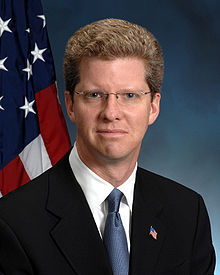 WORD ON THE STREET: As 2012 draws to a close, Americans are starting to feel a sense of hope about our economy for the first time in half a decade – and a big reason is a rebound in the housing market. Indeed, with the number of families falling into foreclosure half of what it was in early 2009, housing construction growing faster than at any time since 2008, the strongest year of home sales since the crisis began, and rising home values lifting 1.3 million families above water in the first half of 2012, our housing market has momentum we haven't seen in years.
WORD ON THE STREET: As 2012 draws to a close, Americans are starting to feel a sense of hope about our economy for the first time in half a decade – and a big reason is a rebound in the housing market. Indeed, with the number of families falling into foreclosure half of what it was in early 2009, housing construction growing faster than at any time since 2008, the strongest year of home sales since the crisis began, and rising home values lifting 1.3 million families above water in the first half of 2012, our housing market has momentum we haven't seen in years.
Of course, it hasn't always been this way. It was only a few years ago when we learned that many of the very same financial institutions responsible for causing the housing crisis – with predatory loans and exploding adjustable rate mortgages – were actually making it worse by foreclosing on homeowners without verifying paperwork, losing documents and failing to provide even the most basic assistance that might have helped families save their homes.
Well, with the settlement, the banks committed to not simply cutting a check for the abuses we saw but to actually help homeowners. By providing tens of billions of dollars to families, the agreement represents the second largest consumer relief settlement in the nation's history.
At a moment when Americans have been looking for Washington to put partisanship aside to deliver results, this week, the first official report from the settlement's independent monitor indicates that families and struggling homeowners can get what they are promised when we work in a bipartisan way. Between March and September, more than 327,000 homeowners received $28 billion in overall consumer relief, with homeowners receiving more than $86,000 in benefits on average.
The settlement report demonstrates significant progress on the broadest and most robust principal reduction program in our nation's history. Because of the settlement, banks have lowered the monthly payments of over 70,000 struggling homeowners and actually reduced their loan balance by more than $125,000, on average.
It also shows that over 37,000 underwater homeowners who remained current on their mortgage throughout the housing crisis but could not refinance through no fault of their own have been able to refinance because of the settlement at historically low rates. Nearly $20 billion of the completed consumer relief has come in the form of debt forgiveness – including short sales that allow families who had been unable to get out from under hundreds of thousands of dollars of mortgage debt to move to a new job or start anew while avoiding foreclosure.
Importantly, at a time when we had to scratch and claw for Congress to provide $45 million to restore housing counseling funding, the settlement forced banks to pay several billion dollars to the states. To date, more than $1 billion has been allocated for housing-related purposes, including nearly a quarter billion dollars to housing counseling and another $50 million to legal aid.
Lastly, as of October, the five largest mortgage servicers – representing 60% of the mortgage market – were required to comply with tough customer service standards that are designed to put an end to the lost paperwork, dropped calls and runaround that harmed so many families. These include fundamental reforms such as preventing a bank from foreclosing on a home at the same time that family is awaiting a modification, as well as providing a single point-of-contact for homeowners seeking help and the development of an online portal where homeowners can securely upload documents without fear that they will be lost in the shuffle.
With servicers on track to fulfill their consumer relief commitments next year, homeowners are finally beginning to see the light at the end of the tunnel. That's encouraging news – for families, for neighborhoods, for our housing market and for the country.
Shaun Donovan is secretary of the U.S. Department of Housing and Urban Development. This article is adapted and edited from remarks delivered to the media on Nov. 19. The full text of Donovan's comments is available online.











